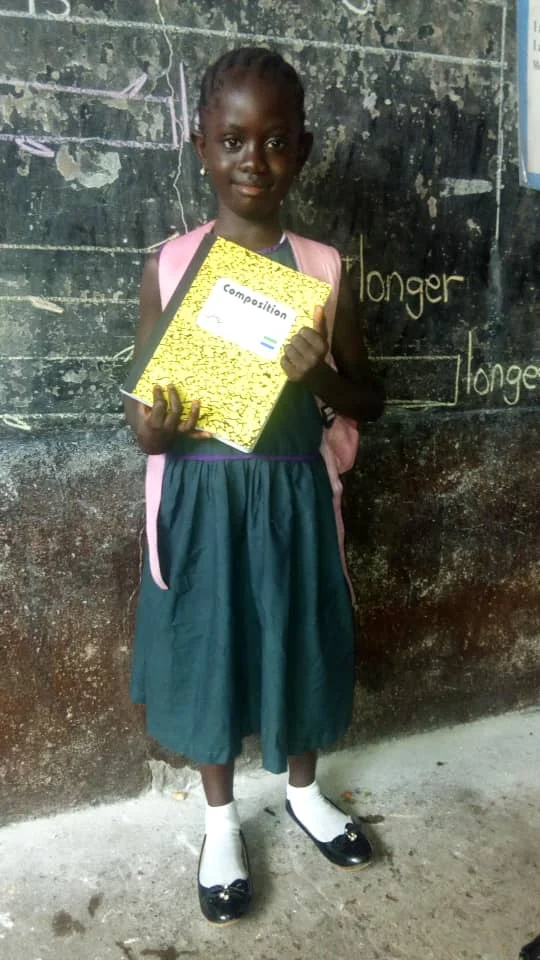Children of Soup
The Soup Foundation works with children between the ages of 4-13 that are experiencing hardships and are unable to attend school. We provide assistance, supervision, and guidance to help each child in Sierra Leone have an equal opportunity for a quality education.
Fatmata Kanu(8 years old). She is one of the kids in TSF and she is one of the top students in her class.
Why are so many kids not attending school is Sierra Leone?
Although Sierra Leone is trying to move forward, the country still remains in the top 10 poorest countries in the world. 60% of the population earns a salary of $150 a year, while 20% earns a salary of $100 a month. 70% of the youth population are unemployed and an estimate of 200,000 youth are searching daily for jobs. This drastically reduces educational opportunities as most children are forced to do labor work to support their family & needs. The kids get so used to doing labor work, that school is now on the back hand. Even the children whose families don't want them to work and can allow them to attend school, often struggle with the cost of school uniforms, travel, and other various materials/daily needs. Our Foundation starting kit provides each student 2 uniforms (3 shirts, 3 pants or dress, 3 packs of socks, 3 undershirts and 3 shoes), supplies (2 backpacks, lunch container with food(2 meals a day), notebooks, pencils, folders, school books, crayons and etc), and Foundation staff member supervision before and after school. The rough cost to provide a uniform and supplies for a single child is roughly $70.00 US(not including school fees).
Issues Impacting Education in Sierra Leone
Over years of civil war and other issues, many educational establishments were closed and despite numerous ongoing efforts and improvements, many are still closed to this day. Many schools were destroyed during war which lead to less schools and a larger amount of kids in classrooms. A classroom normally holds a minimum of 50 kids and can go up to about 100 . There has been much work to improve school accessibility but it still remains very difficult for children to go to school, especially in remote regions. We are currently partnered with St. Phillips School in Central Freetown and help volunteer in the classroom, assisting in various educational activities and school functions. We also run an after school / weekend program that complements daily school curriculum and teaches additional life skills (Confidence in ones self, Empathy for others, and Being part of the change).
Ebola also played an issue for education in Sierra Leone. With almost 5,000 dying and over 15,000 Ebola cases, that led to many children losing their parents/guardians. The spreading of the disease also closed schools down both temporary and permanently. Some kids/youth missed school for almost 2-3 years because of the Ebola which lasted a few years. Though many West African countries were hit with Ebola, Sierra Leone suffered the hardest and lost many civilians. Schools began to reopen in 2017 but at a slow pace.
Abdul Supa visiting to spread the word of the foundation and in search of new kids to add to the foundation.
Saran”Miss K” Koroma(COO) visiting the children during their after school session.
Another major issue stopping children in Sierra Leone from going to school
are common health problems that are left untreated. These are issues grow, undiagnosed, and lead to more serious health issues that stops kids from taking part in daily life. Some of the more common health issues that the children has is malaria, typhoid fever and poor feeding. Our staff work to provide monthly doctor evaluations, help with daily hygiene (clean clothes, barber visits, provide food for the children and other things to help the overall well being/mental health of the children.
To help keep the kids from doing labor work, off the streets and out of unsafe environments, The Foundation also offers entertainment for the kids. We treat the kids 1-2 times a month, giving them that childhood life that they never experienced. Some examples are taking them to parks, going out for ice cream, playing sports and etc.


